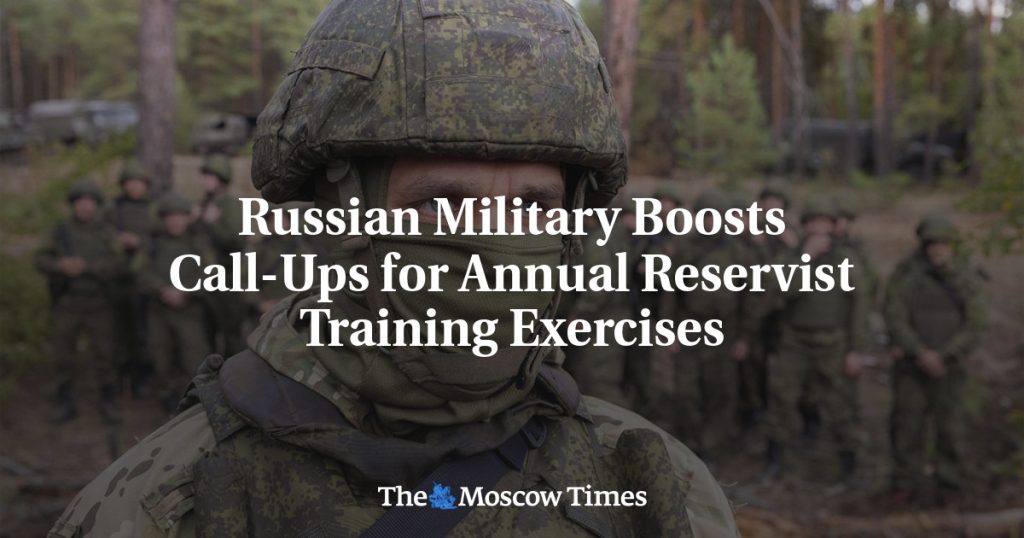The Russian military is conducting a higher-than-normal number of reservist call-ups for training exercises in the Moscow region, potentially indicating efforts to make up for volunteer recruitment shortages or preparations for a major offensive in Ukraine. Military commissariats in the Moscow region have demanded detailed lists of eligible male employees from various enterprises, raising concerns about workforce shortages that could disrupt operations. Similar requests have been reported from other regions in western and northern Moscow, suggesting a widespread mobilization effort that may involve other areas as well.
President Vladimir Putin signed a decree in March for the conscription of reservists for military drills, the details of which are classified. Russia and Ukraine have been engaged in a war of attrition, with Russian advances in the Donetsk region prompting concerns about Ukraine’s ammunition shortages. While the September 2022 partial mobilization decree is still in force, launching a new round of mobilization remains unpopular, but necessary if the Russian leadership continues to demand more territories from Ukraine. The need for increased numbers, combat training, and army rehearsals signal potential preparations for a significant military offensive.
Israeli military expert David Sharp believes the increased call-ups for military training aim to raise combat training levels, enhance reserve cohesiveness, and rehearse military procedures. The recruitment of contract soldiers may have compensated for previous losses, but the need for additional troops could arise due to more ambitious goals in Ukraine. Sharp suggests that the Kremlin may need to increase the army’s numbers if Ukraine struggles to receive help from allies, although mobilizing reservists for offensive operations against an experienced enemy poses challenges.
The training camps for reservists provide retraining in military specialties and serve as a system check for the General Staff’s organizational and mobilization department. The number of people called up for training camps varies by region, indicating a nationwide effort to boost combat readiness and prepare for potential military engagements. The Russian military’s reliance on both voluntary and coercive recruitment highlights the need for ongoing training and preparedness to maintain operational effectiveness in different scenarios.
The potential mobilization of reservists for offensive operations against Ukraine suggests that the Russian military is planning to increase combat capabilities and address potential manpower shortages. The gradual buildup of troops and enhanced combat training could indicate preparations for a large-scale military offensive in the region. The necessity of training new soldiers, rehearsing military procedures, and ensuring reserve cohesiveness may be part of a strategy to pursue ambitious goals in Ukraine and solidify Russia’s military presence in the region. The call-ups for reservist training serve as a crucial component of Russia’s military readiness and operational planning for possible future conflicts or engagements in the region.


